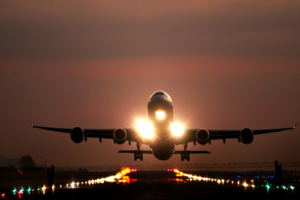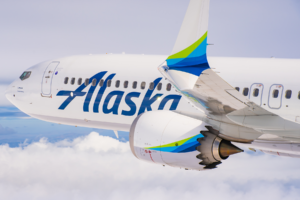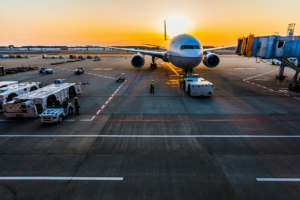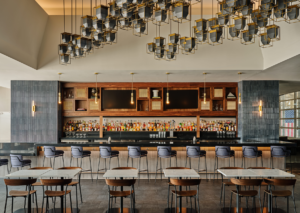Federal Court: Travelers Have 1st Amendment Right To Record TSA Screeners
#1
Original Poster
Join Date: Aug 2006
Location: PDX
Programs: AS, DL, UA, AC, Nexus, TSA Pre
Posts: 364
Federal Court: Travelers Have 1st Amendment Right To Record TSA Screeners
Link
Interesting case. Not sure if it will make much difference in practice. Can TSA get around this ruling by having the airport prohibit recordings? Perhaps only if the airport is not owned by a public agency?
nrg
Interesting case. Not sure if it will make much difference in practice. Can TSA get around this ruling by having the airport prohibit recordings? Perhaps only if the airport is not owned by a public agency?
nrg
#2
Join Date: Jan 2021
Location: LAX, TIJ
Programs: UA, AS, Volaris, VivaAerobús
Posts: 204
I don't think so.
Some STSOs are pretty possessive and say that this is "My checkpoint" and insist that you do things they want you to do at "their checkpoint". Are you really that brave to challenge an STSO and maybe have it escalate to a TSM or LEO while the clock runs out on you, just so that you can exert your 1st Amendment?
Some STSOs are pretty possessive and say that this is "My checkpoint" and insist that you do things they want you to do at "their checkpoint". Are you really that brave to challenge an STSO and maybe have it escalate to a TSM or LEO while the clock runs out on you, just so that you can exert your 1st Amendment?
Last edited by i0wnj00; Mar 3, 2021 at 5:44 pm
#3
FlyerTalk Evangelist
Join Date: Mar 2008
Location: DFW
Posts: 28,753
I don't think so.
Some STSOs are pretty possessive and say that this is "My checkpoint" and insist that you do things they want you to do at "their checkpoint". Are you really that brave to challenge an STSO and maybe have it escalate to a TSM or LEO while the clock runs out on you, just so that you can exert your 1st Amendment?
Some STSOs are pretty possessive and say that this is "My checkpoint" and insist that you do things they want you to do at "their checkpoint". Are you really that brave to challenge an STSO and maybe have it escalate to a TSM or LEO while the clock runs out on you, just so that you can exert your 1st Amendment?
#4
FlyerTalk Evangelist
Join Date: Aug 2009
Location: ZOA, SFO, HKG
Programs: UA 1K 0.9MM, Marriott Gold, HHonors Gold, Hertz PC, SBux Gold, TSA Pre✓
Posts: 13,811
#5
Join Date: Nov 2007
Location: WAS
Programs: enjoyed being warm spit for a few years on CO/UA but now nothing :(
Posts: 2,567
In the USA: the one major stumbling block is that while video recording in public is generally not prohibited, in many jurisdictions recording of spoken conversation without two-party consent is prohibited. And for most video recording devices in use by most people it is difficult, if not impossible, to record video without also recording audio. And so the person doing the recording can get jammed up simply over the audio portion. In one-party consent jurisdictions this is less a problem.
In the US, all commercial airports are publicly owned and operated except Branson/BBG and Luis Munoz/SJU (and IIRC at both the land is publicly owned but a private entity runs the operations). This status can have an impact on whether the entity in control may institute a general prohibition on audio and video recording as opposed to a local/state government or "independent" authority that operates the airport. The US federal government does not operate any commercial airports (the last were IAD and DCA which are now operated by MWAA).
In the US, all commercial airports are publicly owned and operated except Branson/BBG and Luis Munoz/SJU (and IIRC at both the land is publicly owned but a private entity runs the operations). This status can have an impact on whether the entity in control may institute a general prohibition on audio and video recording as opposed to a local/state government or "independent" authority that operates the airport. The US federal government does not operate any commercial airports (the last were IAD and DCA which are now operated by MWAA).
Last edited by Section 107; Mar 4, 2021 at 9:25 am
#6
Moderator: Travel Safety/Security, Travel Tools, California, Los Angeles; FlyerTalk Evangelist
Join Date: Dec 2009
Location: LAX
Programs: oneword Emerald
Posts: 21,334
This is the California statute for example:
632. (a) A person who, intentionally and without the consent of all parties to a confidential communication, uses an electronic amplifying or recording device to eavesdrop upon or record the confidential communication, whether the communication is carried on among the parties in the presence of one another or by means of a telegraph, telephone, or other device, except a radio, shall be punished by a fine not exceeding two thousand five hundred dollars ($2,500) per violation, or imprisonment in a county jail not exceeding one year, or in the state prison, or by both that fine and imprisonment. If the person has previously been convicted of a violation of this section or Section 631, 632.5, 632.6, 632.7, or 636, the person shall be punished by a fine not exceeding ten thousand dollars ($10,000) per violation, by imprisonment in a county jail not exceeding one year, or in the state prison, or by both that fine and imprisonment.
***
(c) For the purposes of this section, “confidential communication” means any communication carried on in circumstances as may reasonably indicate that any party to the communication desires it to be confined to the parties thereto, but excludes a communication made in a public gathering or in any legislative, judicial, executive, or administrative proceeding open to the public, or in any other circumstance in which the parties to the communication may reasonably expect that the communication may be overheard or recorded.
***
(c) For the purposes of this section, “confidential communication” means any communication carried on in circumstances as may reasonably indicate that any party to the communication desires it to be confined to the parties thereto, but excludes a communication made in a public gathering or in any legislative, judicial, executive, or administrative proceeding open to the public, or in any other circumstance in which the parties to the communication may reasonably expect that the communication may be overheard or recorded.
#7
Join Date: Nov 2007
Location: WAS
Programs: enjoyed being warm spit for a few years on CO/UA but now nothing :(
Posts: 2,567
True, and CA has a pretty good one. But it's a patchwork - not all states have the same rules. So you gotta be careful and know the rules of the state where one wants to record a conversation.....
#8
Moderator: Travel Safety/Security, Travel Tools, California, Los Angeles; FlyerTalk Evangelist
Join Date: Dec 2009
Location: LAX
Programs: oneword Emerald
Posts: 21,334
Please feel free to provide citations to the relevant jurisdictions and statutes if I'm wrong.
#9
Join Date: Nov 2007
Location: WAS
Programs: enjoyed being warm spit for a few years on CO/UA but now nothing :(
Posts: 2,567
I am not disagreeing with you, just pointing out that each state has different definitions and requirements. Based on the definitions of the state, that "unless" is a really big caveat. In some jurisdictions, even though the conversation happens in public that does not mean one of the actual parties in the conversation does not have a reasonable expectation of privacy. Most states (Virginia) are "one-party consent" and others (CA) require "all-party" consent.
Cites for audio recording: It's been a while and what came first to mind were the eavesdropping laws of Illinois and Maryland where there were some notable cases of folks being charged with felonies for audio recording their arrests. But quick research shows federal appeals courts found those laws unconstitutional.
Those cases involved actual law enforcement; conversations of law enforcement is altogether another creature - generally their conversations in the performance of their official duties in a public place do not enjoy any expectation of privacy. But we know darn well on this forum that TSOs are not law enforcement (and that perhaps TSA needs to teach this fact to their employees more effectively) so perhaps TSO's conversations do enjoy a greater expectation of privacy? I suspect that courts will view TSOs as public employees performing their official duties in a public place and therefore will/would not grant them greater expectations of privacy than LEOs. But I don't know for sure.
Cites for audio recording: It's been a while and what came first to mind were the eavesdropping laws of Illinois and Maryland where there were some notable cases of folks being charged with felonies for audio recording their arrests. But quick research shows federal appeals courts found those laws unconstitutional.
Those cases involved actual law enforcement; conversations of law enforcement is altogether another creature - generally their conversations in the performance of their official duties in a public place do not enjoy any expectation of privacy. But we know darn well on this forum that TSOs are not law enforcement (and that perhaps TSA needs to teach this fact to their employees more effectively) so perhaps TSO's conversations do enjoy a greater expectation of privacy? I suspect that courts will view TSOs as public employees performing their official duties in a public place and therefore will/would not grant them greater expectations of privacy than LEOs. But I don't know for sure.
Last edited by Section 107; Mar 8, 2021 at 2:58 pm Reason: remove duplicate sentences
#10
FlyerTalk Evangelist
Join Date: Mar 2008
Location: DFW
Posts: 28,753
In the particular case being discussed the person who attempted to record the screening was several feet away and without specialized audio equipment wouldn't have been able to record the screeners words. In general airport screening a person recording cannot interfere with screening operations and in general are not close enough to record discrete conversations. Toss in the general background noise found at checkpoints makes audio recording difficult. Even if they could record conversations what words might a TSA screener fear being recorded. If they have nothing to hide why object?
#11
Join Date: Jan 2014
Posts: 288
I know of only two states that have "2 party consent" laws -- Massachusetts and Illinois. In Massachussets and the rest of the 1st Circuit, I believe, Glick established that these consent laws could not be used to prevent the public from recording law enforcement performing their duties.
As per my previous post, both the MA and IL statutes do in fact prohibit recording anywhere. I mistakenly referred to it in that post as "two party consent" -- I believe it actually not "consent" that is required, but notification. In other words, you don't need the other party's permission, you just need to inform them. At your home, a posted notice stating "these premises under video and audio surveillance" suffices. And again, the notification requirement has been explicitly -- at least in the First Circuit -- found to be unconstitutional when applied to situations of citizens video/audiotaping law enforcement performing their duties -- the case is Glik. Glik was charged with violating the MA statute when he filmed police doing what police do a homeless person in Boston Common so he sued and prevailed,.
All above info is based on top of my head recollection, a dodgy source at best, so don't @ me, bro
To the best of my knowledge, no jurisdiction in the US prohibits recordings of conversations unless those take place in areas or situations where at least one of the persons participating has a reasonable expectation of privacy.
Please feel free to provide citations to the relevant jurisdictions and statutes if I'm wrong.
Please feel free to provide citations to the relevant jurisdictions and statutes if I'm wrong.
All above info is based on top of my head recollection, a dodgy source at best, so don't @ me, bro
Last edited by TWA884; Mar 8, 2021 at 9:28 am Reason: Merge consecutive posts by the same member
#12
Moderator: Travel Safety/Security, Travel Tools, California, Los Angeles; FlyerTalk Evangelist
Join Date: Dec 2009
Location: LAX
Programs: oneword Emerald
Posts: 21,334
I know of only two states that have "2 party consent" laws -- Massachusetts and Illinois. In Massachussets and the rest of the 1st Circuit, I believe, Glick established that these consent laws could not be used to prevent the public from recording law enforcement performing their duties.
Digital Media Law Project - Recording Phone Calls and Conversations
Eleven states require the consent of every party to a phone call or conversation in order to make the recording lawful. These "two-party consent" laws have been adopted in California, Connecticut, Florida, Illinois, Maryland, Massachusetts, Montana, New Hampshire, Pennsylvania and Washington.
As per my previous post, both the MA and IL statutes do in fact prohibit recording anywhere. I mistakenly referred to it in that post as "two party consent" -- I believe it actually not "consent" that is required, but notification. In other words, you don't need the other party's permission, you just need to inform them. At your home, a posted notice stating "these premises under video and audio surveillance" suffices. And again, the notification requirement has been explicitly -- at least in the First Circuit -- found to be unconstitutional when applied to situations of citizens video/audiotaping law enforcement performing their duties -- the case is Glik. Glik was charged with violating the MA statute when he filmed police doing what police do a homeless person in Boston Common so he sued and prevailed,.
All above info is based on top of my head recollection, a dodgy source at best, so don't @ me, bro
All above info is based on top of my head recollection, a dodgy source at best, so don't @ me, bro
#13
FlyerTalk Evangelist
Join Date: Mar 2008
Location: DFW
Posts: 28,753
I just read through this document which was a link within the reference provided by TWA884.
Recording Police Officers and Public Officials
I selected this item as I see TSA screeners as public officials. Not sure if that belief would hold up under a legal examination. My takeaway is that recording TSA screeners is probably a protected First Amendment right but not all Federal Circuit Courts have clearly so stated and an individual could find themselves as defendant in legal proceedings.
Recording Police Officers and Public Officials
I selected this item as I see TSA screeners as public officials. Not sure if that belief would hold up under a legal examination. My takeaway is that recording TSA screeners is probably a protected First Amendment right but not all Federal Circuit Courts have clearly so stated and an individual could find themselves as defendant in legal proceedings.
#14
Join Date: Oct 2008
Location: Greensboro
Programs: TSA
Posts: 2,434
I just read through this document which was a link within the reference provided by TWA884.
Recording Police Officers and Public Officials
I selected this item as I see TSA screeners as public officials. Not sure if that belief would hold up under a legal examination. My takeaway is that recording TSA screeners is probably a protected First Amendment right but not all Federal Circuit Courts have clearly so stated and an individual could find themselves as defendant in legal proceedings.
Recording Police Officers and Public Officials
I selected this item as I see TSA screeners as public officials. Not sure if that belief would hold up under a legal examination. My takeaway is that recording TSA screeners is probably a protected First Amendment right but not all Federal Circuit Courts have clearly so stated and an individual could find themselves as defendant in legal proceedings.
#15
FlyerTalk Evangelist
Join Date: Mar 2008
Location: DFW
Posts: 28,753
It never ceases to amaze me when anyone indicates that they have a "Right to not be recorded" in a public space (not just for TSA, in many other walks of life as well). There is no expectation of privacy in public - regardless of position, or job. The only time that filming/video can be stopped at a checkpoint, is if they are interfering with the screening process (this means that you are actively obstructing the process, by some form or means), or they are caught trying to video items that are obviously kept from the public due to security reasons (like the Xray machine screens that they have to maneuver into blocked off areas to film). Other than that, they have the absolute right to film anything in a public forum, including the checkpoint areas. TSA re-emphasizes this consistently in training, and in leadership training. Anyone that acts contrary to what I listed above, is wrong - it really is that simple. We get training each year reiterating that folks can film in the checkpoint as long as they do not run afoul of the listed situations above.
Filming at TSA Checkpoints
An agent of the Transportation Security Administration reportedly summoned a law enforcement officer on a teenager 16 years of age who refused to obey his orders to stop filming his father experiencing a “pat-down” at the security checkpoint of New Orleans International Airport.
At the 1:23 mark in this video, you can hear the agitated agent bellow “You respect this badge right here!” as he points to his uniform:
At the 1:23 mark in this video, you can hear the agitated agent bellow “You respect this badge right here!” as he points to his uniform:





















